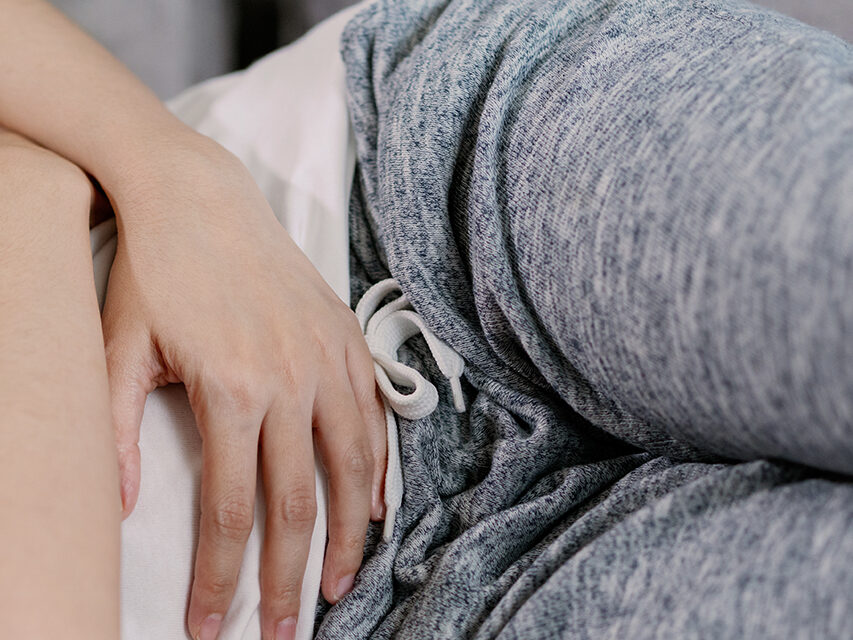
Pelvic Health
At Ivy Rehab, we believe everyone deserves to feel strong, confident, and supported. Our Pelvic Health Physical Therapy services use compassionate, evidence-based care to help you regain comfort, control, and quality of life.
What Is Pelvic Floor Physical Therapy?
Your pelvic floor muscles form a supportive network at the base of your pelvis, playing a vital role in bladder, bowel, and sexual function, and core stability. When these muscles become weak, tight, or uncoordinated, it can affect your everyday health and comfort.


Common Causes of Pelvic Floor Dysfunction
Pelvic Floor Dysfunction (PFD) is a condition that renders a person unable to control their pelvic floor muscles. PFD can result from a variety of factors, including:
- Pregnancy and childbirth
- Surgery or pelvic trauma
- Conditions like endometriosis, prolapse, and interstitial cystitis
- Obesity
- Aging
Common symptoms of PFD include, but are not limited to, a feeling of pain or heaviness/pressure in the area of the lower abdomen or vagina, incontinence, leakage, or urgency. Symptoms tend to occur when upright, straining or coughing.
Why Choose Ivy Rehab for Pelvic Health Physical Therapy?
Our Approach to Care
At Ivy Rehab, we offer:
- Personalized, evidence-based treatment plans tailored to your needs
- Compassionate, highly trained clinicians with expertise in pelvic health
- Modern facilities with advanced equipment to support your journey
Our team is committed to providing a respectful, supportive environment where you feel heard and empowered every step of the way.
Conditions We Treat
We help patients with a wide range of pelvic health concerns, including:
- Bladder and bowel dysfunction (incontinence, urgency, constipation)
- Pelvic pain and sexual dysfunction
- Pre- and post-partum pelvic health needs
- Pelvic organ prolapse
- Recovery after pelvic surgeries and cancer treatments
What to Expect During Your Pelvic Health Physical Therapy Journey
Your First Visit
Your first appointment includes:
- A thorough evaluation of your pelvic health and overall physical well-being
- Education about pelvic floor anatomy and function
- Collaborative goal setting to tailor your care plan
Ongoing Treatment
Your personalized plan may include:
- External and internal therapy techniques (always with your consent)
- Manual therapy, pelvic floor exercises, and biofeedback
- Customized at-home programs to maintain and build on your progress
Throughout your care, our team will prioritize your comfort, privacy, and goals.
How Can We Help With PFD?
The Ivy Rehab Network has physical therapists that can provide a non-surgical approach to rehabilitation of dysfunctions in the pelvis that contribute to bowel, bladder, sexual health, and pain complaints.
Approaches may include:
- Behavioral strategies
- Manual therapies
- Modalities
- Therapeutic exercise
- Education
- Functional retraining
What are tips to support pelvic health?
- Strengthen your pelvic floor muscle. Kegel exercises can be incorporated into your daily routine to help.
- If your pelvic muscles are overly tight, consider practicing meditation or guided relaxation.
- Consume sufficient fiber and fluids as well as exercise regularly to help avoid constipation.
- Refrain from pushing too hard during bowel movement.
- Lower your intake of caffeine, alcohol, and other dehydrators to help avoid urinary incontinence or a urinary tract infection.
FAQs
Do I need a referral for pelvic health therapy at Ivy Rehab?
Referral requirements vary depending on your state and insurance provider. Some locations allow direct access, meaning you can begin pelvic health therapy without a referral, while others may require one from your physician. To ensure a smooth start to your care, we recommend contacting your local Ivy Rehab clinic. Our team can help you understand the requirements in your area and assist with any necessary paperwork or next steps.
What does a pelvic health physical therapist do?
A pelvic health physical therapist specializes in treating conditions related to the pelvic floor—muscles that support bladder, bowel, and sexual function. They use non-surgical methods like manual therapy, exercise, and education to help manage issues such as incontinence, pelvic pain, prolapse, and recovery after childbirth or surgery. At Ivy Rehab, treatment is personalized and evidence-based, with a focus on helping patients feel supported and empowered.
What should I wear to my pelvic floor physical therapy appointment?
Wear comfortable, loose-fitting clothing that allows for easy movement. Depending on your treatment plan, your therapist may ask you to perform light exercises or stretching, so clothing that gives you full range of motion is ideal. If an internal exam or manual therapy is part of your care, you’ll be properly draped to ensure your privacy and comfort at all times. Your therapist will walk you through each step to make sure you feel safe, informed, and respected throughout your visit.

Start living your best life.
Our expert pelvic health physical therapists are ready to support you on your journey to better health, strength, and confidence.

